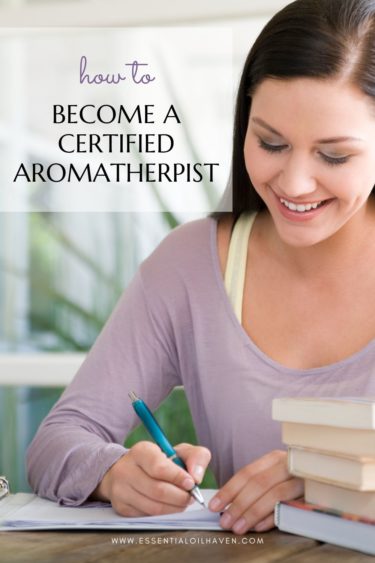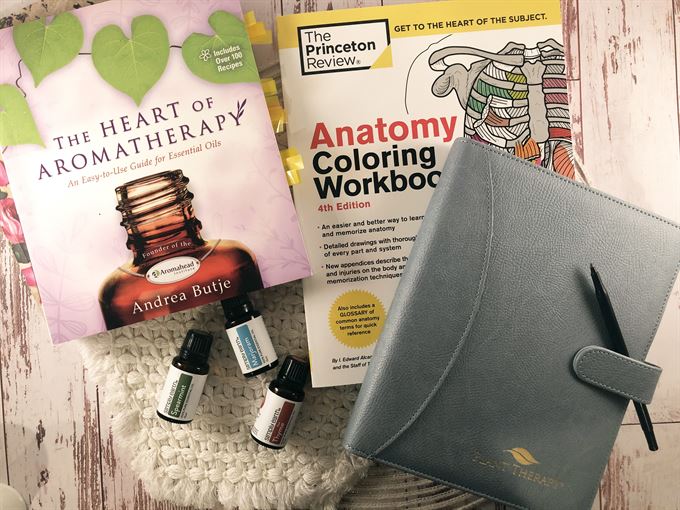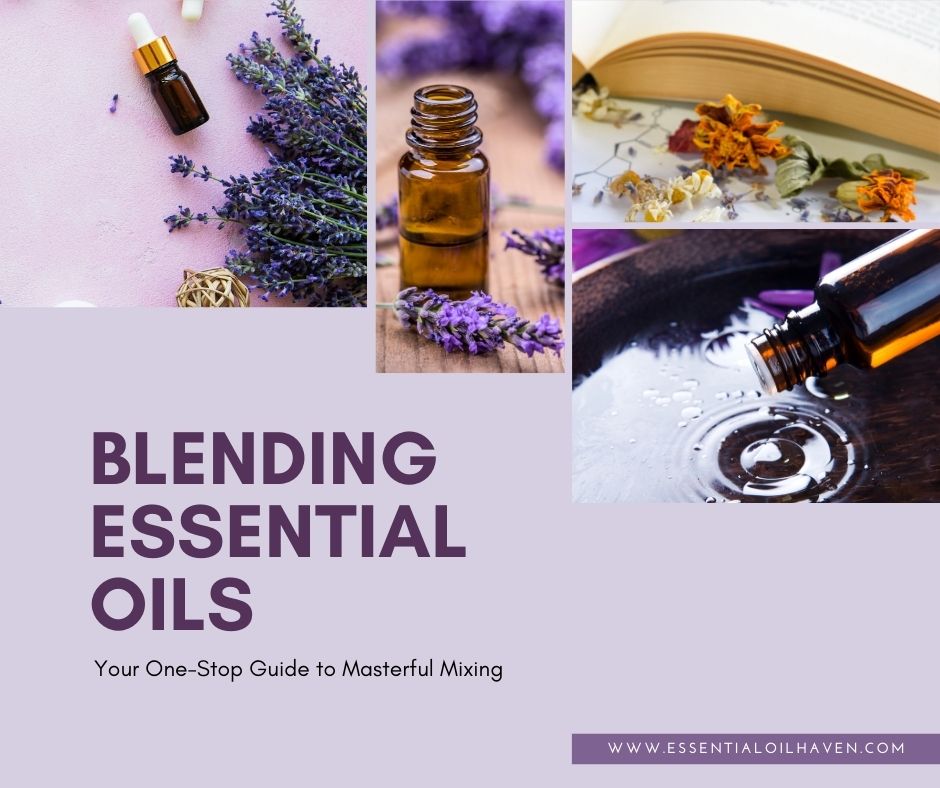 Are you thinking about becoming certified in aromatherapy? It’s a great way to learn about the benefits of essential oils, and how to use them for your health and well-being.
Are you thinking about becoming certified in aromatherapy? It’s a great way to learn about the benefits of essential oils, and how to use them for your health and well-being.
But, it is also quite a complex journey that you’ll want to make sure you’re ready for before diving in.
If an aromatherapy career is on your radar, let me help you understand what it would take to get there.
This post contains affiliate links, which means if you make a purchase through these links, I may receive a small commission at no extra cost to you. Read my full disclosure policy here.
What do Aromatherapists do?
Aromatherapists help you use essential oils safely. After studying the subject carefully, they can help you make the most of your essential oils, carrier oils, and other aromatherapy products.
Most aromatherapists offer individual consultations and programs. These services aim to create a health plan that works for you. The licensed aromatherapist takes a complete health history before starting to work with you. This is similar to intake forms other medical professionals.
If you’re an essential oil user that requires specific advice on how to make essential oils work with existing medication, health conditions, or special circumstances, then working with a qualified professional is your best bet.
Working with Certified aromatherapists is recommended for pregnant women in particular. The individual advice on essential oil treatments can provide important safety instructions.
What is a Certified Aromatherapist?
A Certified Aromatherapist is someone who has studied aromatherapy per a specific curriculum. The curriculum standards are set by NAHA, the National Association for Holistic Aromatherapy.
There is a difference between the title of Certified Aromatherapist, and simply taking an aromatherapy course online. Many online courses teach you how to use essential oils, but they are only for informational or educational purposes.
To study aromatherapy per the NAHA approved curriculum, you’ll need to study with a NAHA approved school.

Anyone with a keen interest can start to study aromatherapy.
Therapeutic use of essential oils is a fantastic holistic health practice. An experienced licensed aromatherapist can offer the best guidance on using essential oils safely.
Find an aromatherapist near you.
How do I become a Certified Aromatherapist?
To become certified in aromatherapy, you’ll have to take a certification course from an approved aromatherapy school. The NAHA has a list of approved schools available on their website.
The course materials include study of individual essential oils, essential oils chemistry, safety concerns and blending tips. Plus, the course material includes a big module on how our body works as a whole. Anatomy and physiology is important to understand ailments and be able to choose holistic treatments accordingly.

Aromatherapy study materials, including the big book of anatomy
Depending on the school your enroll with, there are lessons, assignments, quizzes, research papers, and case studies you’ll have to complete.
Different NAHA approved schools offer their course materials in slightly different ways. Some schools send you printed binders, other students get access to an online dashboard and digital course materials.
Make sure to choose a school that offers their course in your preferred way of learning.
A final exam is required for you to obtain your official professional certification.
Levels of Certification
The National Association for Holistic Aromatherapy (NAHA) offers three levels of aromatherapy certification.

All levels of aromatherapy certification have exams to complete.
Each level has different requirements, but all three levels signify a commitment to excellence in the field of aromatherapy.
- 1: NAHA Certified Level 1 Aromatherapist (minimum 50 hours of study)
- 2: NAHA Certified Professional Aromatherapist (minimum 200 hours of study)
- 3: NAHA Certified Clinical Aromatherapist (minimum 300 hours of study)
More on the education standards here.
What can you do as a Certified Aromatherapist?
After successful completion of your aromatherapy education, you may choose to become a registered aromatherapist. You can list your name & services on NAHA, as well.
If you’re already working in the field of holistic healthcare sciences, you’re a massage therapist, or part of a group of medical practitioners that offer alternative health services, joining an aromatherapy certification program can lead to better job opportunities.
Being certified in aromatherapy can also give you great confidence when using your own essential oils. Taking an aromatherapy course for your own benefits is a fantastic investment in your skill set. Plus, it would give you the ability to help others improve their well-being.
Aromatherapy, and I think holistic health in general, requires a lot of empirical experience. Even during the certification program, case studies are a large part of your final grade.
Thus, starting out and hoping to have an established aromatherapy business in a short time, is (in my opinion) unrealistic. Holistic aromatherapy is a beautiful field of study, it can benefit your personal health and start you on a path to a new career. However, as all good things, it will take time.
Final Thoughts
I hope this overview into clinical aromatherapy has helped you understand the difference between online learning and aromatherapy certification. Anyone can practice aromatherapy, but only few can call themselves Certified aromatherapists.



Leave a Reply